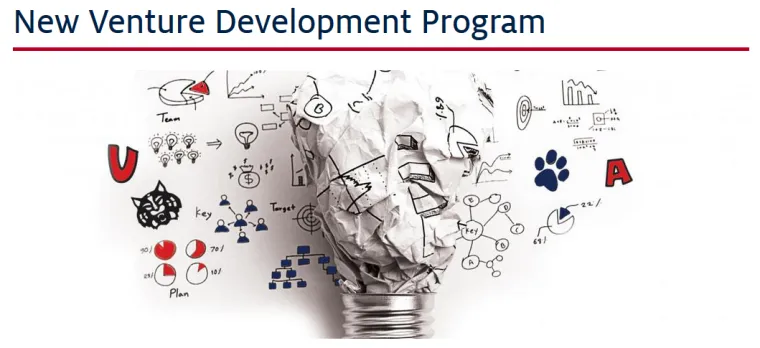In addition to Physiological Sciences program resources and activities there are many professional development opportunities available for graduate students at the University of Arizona to expand and enhance your training.
Many resources are centered at the Graduate Center that is run by the Graduate College. Especially check out their Resources page and their Calendar below of upcoming professional development events.
Other graduate training opportunities include:

The Certificate in College Teaching. Physiological Sciences graduate students who TA enroll in teaching workshops that are electives for this program.

The Eller College of Management and the McGuire Center for Entrepreneurship offer a variety of activites to augment your studies and integrate innovation in biosciences. Doctoral students interested in the Applied Doctoral Minor in Entrepreneurship & Innovation should apply before they select a comprehensive exam committee.
The UA Colege of Science Graduate Minor or Certificate in Science Communication require three electives to be taken at any time before graduation. The goal of this program is to train future science professionals in the skills needed to communicate effectively. This program is also open to postdoctoral fellows, who can use the Qualified Tuition Reduction (QTR) benefit to take courses at a discounted rate.

The office of Research, Discovery, & Innovation is pleased to announce the Responsible Conduct of Research (RCR) workshops. These interactive, discussion-based sessions are open to all members of campus and are desigd specifically for graduate and undergraduate students and postdoctoral researchers. All workshops count towards fulfillment of RCR education requirements from the National Science Foundation (NSF) and National Institutes of Health (NIH).

Graduate Certificate in Regulatory Science
There is a large and growing need for a well-trained regulatory science workforce to advance the translation of research into clinical interventions.
This is why the University of Arizona James E. Rogers College of Law is collaborating with the Critical Path Institute and the College of Pharmacy to offer a certificate, which was created by academic and industry leaders to cover real-world issues in regulatory science. You will learn what goes into creating and developing medical products, along with the legal practices governing them to make an impact in the biotech and pharmaceutical industry.
The program consists of 13 credits comprising of four courses at 3 credits each and one course at 1 credit.

Health Law for Health Professionals
The 100% online graduate certificate in Health Law for Health Professionals program is the result of a unique collaboration between expert faculty from multiple University of Arizona colleges and international leaders looking to hire future graduates. The health care workforce needs individuals with legal knowledge, meaning this certificate enhances students’ employability and success within the health care industry.
The program is designed for individuals who do not wish to practice law but regularly encounter legal, regulatory and ethical issues in their health care professions. The coursework provides a sophisticated and nuanced understanding of legal and ethical doctrine in health care organizations, financing, delivery and practice. Courses provide a fundamental understanding of legal and ethical concerns surrounding financial management, licensing, government involvement and related topics.
The program consists of 12 credits, comprising four courses at 3 credits each. Students can select any four courses out of the current list of offerings. Certificate credits may be applied to the Master of Legal Studies (MLS). The certificate can be completed in 12 months.


